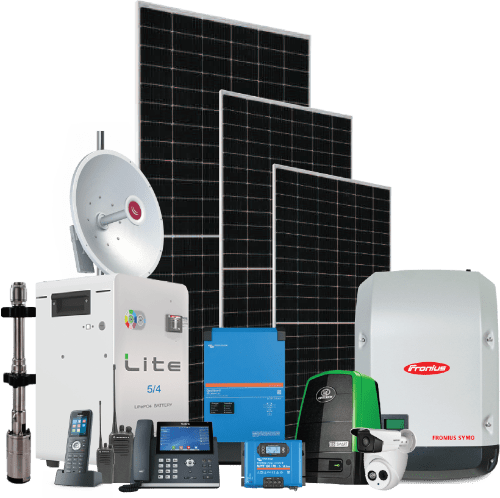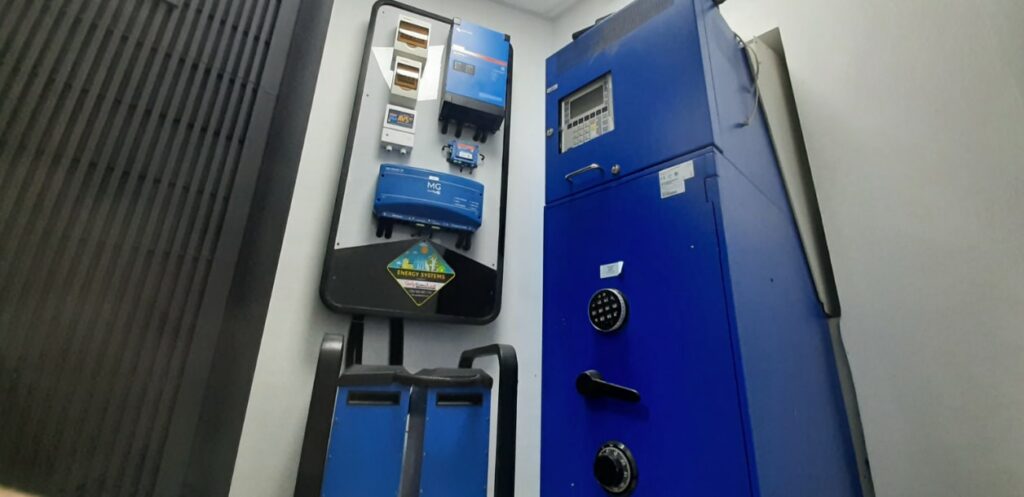
Now more than ever, power has become an essential part of our lives. It keeps our food hot or cold, charges our mobile phones and computers, powers our internet, gates, water pumps, security systems and so much more. The impact of power outages on our lives has thus increased exponentially.
Power outages have remained an ailment and an obstacle to a modern way of life. To counter these issues, many people have now turned to backup power systems to power their homes during such events. With so many different alternatives found on the market, this article will outline some of the factors which make a good residential power backup system.
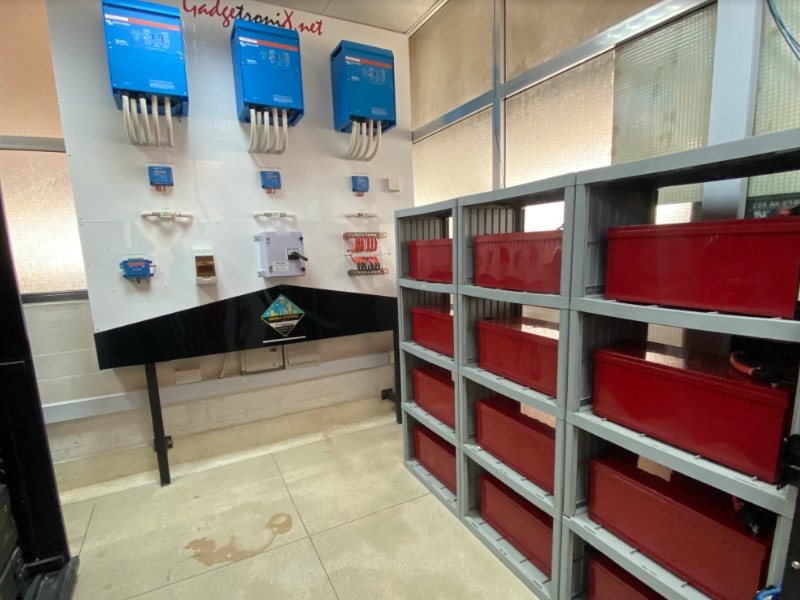
Foremost, a power backup system acts as an emergency power source in case of unexpected power cuts. The backup unit is constantly connected to your utility power grid which ensures the batteries are fully charged and ready to power your house. When your utility power grid falters, the backup power system is automatically switched on via a transfer switch and an inverter.
As soon as the utility power is back, the system will automatically switch back to the national grid and recharge the batteries for the next power cut.
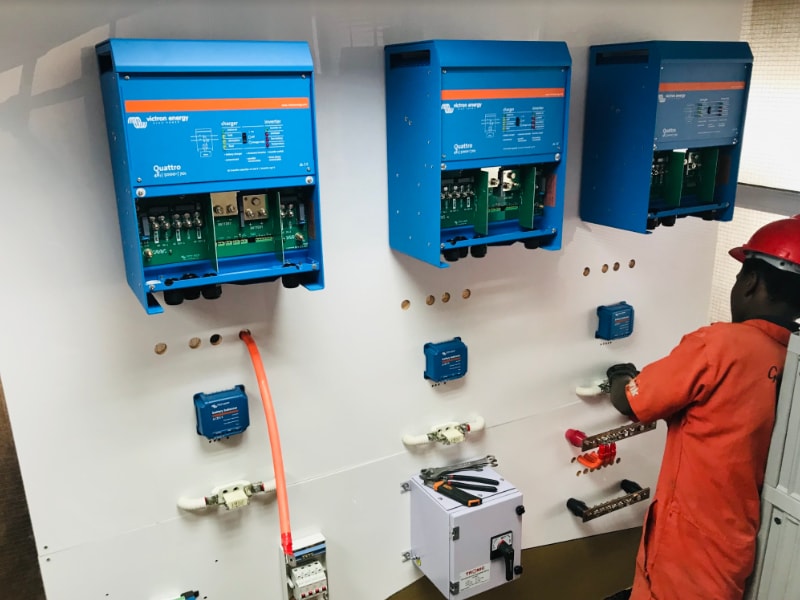
The duration of the backup system is dependent on the size and number of the batteries connected to it and the power load used, such as the number of appliances, lights, gates, and other equipment used during those periods.
While some appliances or systems such as security, lights, fridges, and TVs consume only a small amount of power, other appliances such as air conditioning, kitchen appliances, and pumps require significantly more and may affect the amount of time your batteries will last.
It is thus advised to prioritize essential or light-load appliances when using the backup system.
In order to calculate the capacity of the batteries required to power your house, it is advised to add up the power load of all your essential appliances and systems at the same time, so as to calculate your peak power needs. When working with us, we perform this during the project planning phase.
However, once we have this figure or load profile, it is important to decide how many hours of backup is required for each item so the energy consumption is calculated. You will thus get an estimate of the battery capacity required and eventually the number of batteries you need.
As different types of batteries can be used for different purposes and situations, it is important to pick the kind which best fits your needs.
· Sealed Lead Acid Batteries are best used for on-grid systems as they are designed to sit in a state of full charge for most of their life without any damage.
· Flooded Lead Acid Batteries are best fitted for off-grid systems as they can withstand frequent charging and discharging.
· Lithium Batteries are best suited for on-grid residential backup systems as they can be discharged up to almost 0% without any damage, while lead batteries always need to maintain a significant percentage of charge.
· Nano-Carbon Batteries are best used in off-grid systems where the supply of power is undersized. They can withstand a state of partial charge for a long period of time.
· Nickel-Iron Batteries can be used both on and off-grid. They are, however, significantly more expensive than their counterparts.
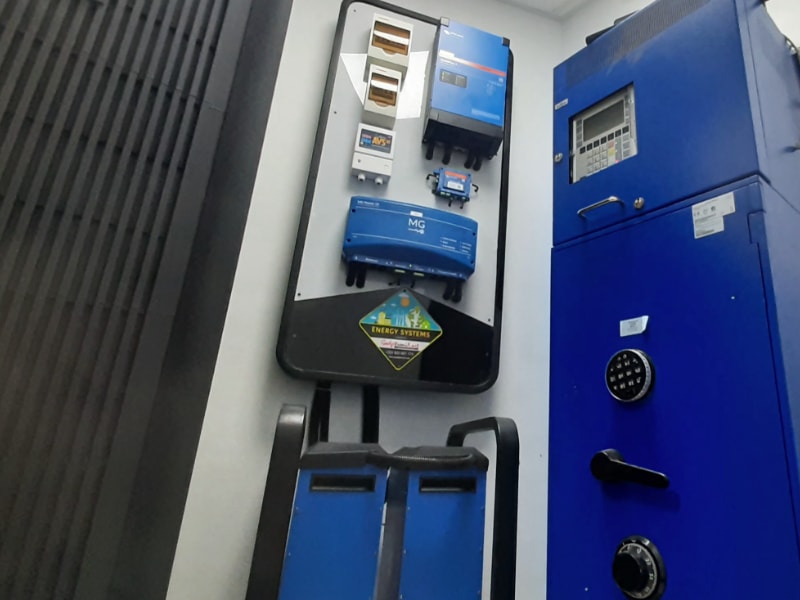
Inverters can range from 500VA up to 15KVA, although inverters/chargers can be arranged in parallel to achieve a 3-phase set-up. The power rating on your inverter will dictate how much power can be used at once, if your consumption exceeds this rating, the inverter will shut down to protect itself.
Using your peak power requirement, you can thus pick an inverter that fits or exceeds this rating to ensure it won’t shut down.
A good residential power backup system is one that is capable of providing your house with its basic, or above basic power requirements in case of a power outage. It should also be easy to operate, with little to no maintenance, and come at an affordable price.
If you are looking to purchase a good power backup system and weather the next power outage in full comfort, our GadgetroniX team would gladly advise you on the best solutions which cater to your needs. Please, feel free to book an appointment and we will be happy to help.
